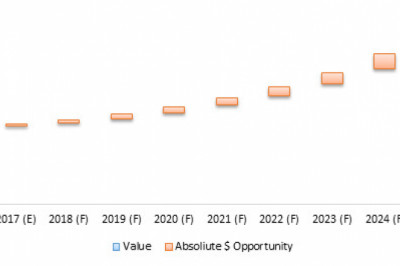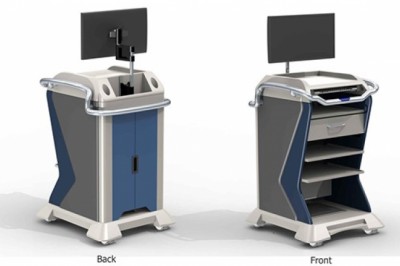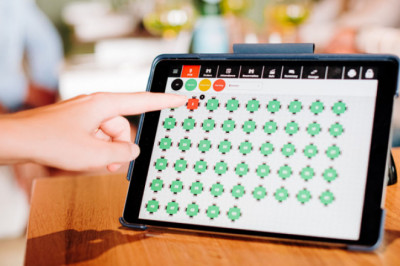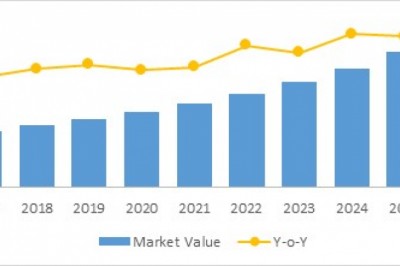views

COVID-19 Impact on Food Authenticity Testing in Food and Beverages Market
The COVID-19 pandemic has influenced the whole planet with its major impacts on the economy and businesses across the globe. The COVID-19 spread worldwide in unprecedented ways due to its high infectious and contagious nature and lack of availability of its vaccine. Though the emergence of the virus can be traced back to Asia, several European countries along with the U.S. have also been struck massively by the pandemic. The virus has spread across all regions ranging from North America, Europe, Asia-Pacific, Middle East, and Africa up to South America. The COVID-19 has been declared as a pandemic by the World Health Organization (WHO) due to its increased spread across the globe. After the declaration of the pandemic, various countries including India, China, and other Asian countries announced complete lockdown to decrease its spread. According to the situation report of 7th June 2021 by WHO, 174 million cases of COVID-19 have been reported globally and 3.7 million patients are dead due to the coronavirus. On a slightly positive note, a total of 157 million people have recovered and a total of 1.9 million vaccine doses have been administered as well.
According to a report from the Food Authenticity Network COVID-19, the pandemic is causing a rise in global food fraud.
For instance,
· According to the report, there was a 37% rise in food fraud cases when comparing the first half of 2020 to the same period in 2019. The worst-hit categories were spirits, wine, and honey. Moreover, adulteration cases rose by 30% and counterfeit incidents by 47%.
With the increase in the global food trade and the expansion of manufacturing units for processed food products, the growers are focusing on ensuring the safety and quality of their food products. This will further fuel the growth of the market.
Impact on Demand
Although the tension of COVID-19 has been noticed in the sector, there were a couple of points that acted as a light at the end of the tunnel. Post the first wave of COVID-19, the global food authenticity testing market is growing as people are getting aware of food safety. People these days highly prefer certified and premium products to lead a healthy lifestyle.
Additionally, several governments and food organizations of various countries are taking precautionary measures on food safety and its quality:
For instance,
· According to the Food and Agriculture Organization of the United Nations (FAO), The Italian Development Cooperation has made an additional contribution of Euro 14 million to the FAO trust fund for food safety and food security
· In July 2020, U.S. Food & Drug Administration (FDA) launched a new era of smarter food safety initiatives and released a blueprint and pilot study. The blueprint will outline the path forward that builds on the work the FDA has done through the implementation of FSMA (FDA Food Safety Modernization Act). FSMA helps to ensure food safety and prevent foodborne diseases via the use of science and risk-based assessment.
· In March 2021, FDA partnered with Mexico’s regulators to strengthen food safety.
· According to Hindustan Times, the Indian government is taking initiatives to improve food safety, hygiene in its canteen by giving training through FSSAI to 80 staff members of the canteen from various government canteens to oversee food hygiene
In this COVID-19 situation, the rising number of initiatives taken by the governmental authorities to promote food safety coupled with rising awareness among consumers will propel the growth of the market. With the rising demand of consumers for food safety, the demand for food authenticity and testing for food to ensure whether the food is safe for consumption is expected to boost the growth of the global food authenticity testing market.
Impact on Supply Chain
The lockdown restrictions implemented by the government across the globe in 2020 and the continuing restrictions in 2021 have been disrupting the supply chain. This is expected to pose huge challenges for food product manufactures and could negatively impact the growth of the food authenticity testing market.
However, the complex supply chains increase the chances of food contamination due to improper handling, not following HACCP guidelines. Therefore, there is increased demand for food authenticity testing among retailers, manufacturers, and growers, which offers benefits to the food supply chain as it manages safety risks, offers preventive and corrective measures to food safety management, and reduces or eliminates the risk of food recalls.
Strategic Initiatives Taken by Manufacturers
COVID-19 outbreak has affected every sector in the market, which also includes the food authenticity testing market. The industry has been severely affected due to the disrupted supply and demand in some cases. Several companies are losing their key revenue sources as food services outlets are closed or have been noticing reduced sales. Some companies have closed their production facilities to mitigate potential risks from COVID-19. Many food authenticity testing companies are taking initiatives during COVID-19.
For instance,
· “Global standard for food safety has been developed to specify the food safety, quality, and operational criteria required to be in place within a food manufacturing organization to fulfill obligations about legal compliance and protection of the consumer. Food businesses, that are certified to the standard must have a full understanding of the products it produces, manufactures and distributes, and have systems in place to identify and control significant product safety hazards. The standard has two key components; senior management commitment and a hazard analysis critical control point (HACCP) based system, which provides a step-by-step approach to managing food safety risks. With all this in mind, businesses that are used to the standard are well-positioned to identify, assess and act on the new risks associated with COVID-19”
- Jessica Burke, GFSI
· “Eurofins is offering testing for detection of SARS-CoV-2 in a growing number of countries around the world. Global capacity is increasing daily as Eurofins teams are working round the clock to deliver results in very short turnaround times and often within 12 to 24 hours. In each geographical region, Eurofins laboratories are working closely with public health authorities and following their priorities to support hospitals and medical professionals fighting this unprecedented health crisis.”
Gilles Martin, CEO, Eurofins Scientific
· “ALS provides routine analysis services to test critical environmental surfaces for the presence and persistence of SARS-CoV-2, the virus that causes COVID-19. Test results are intended to help monitor and strengthen the effectiveness of disinfection and sanitation measures, particularly after outbreaks or positive tests in a business, care home, or public facility.”
ALS Limited
These initiatives could help restore the food authenticity testing market.
Conclusion
The pandemic has taken a toll on every aspect of life including the global economy. With the significant downfalls in various sectors, a collaborative effort of government, industry players, and consumers can win the fight against COVID-19.
COVID-19 outbreak has affected every sector in the market including the food authenticity testing market. Some companies have closed their production facilities to mitigate potential risks from COVID-19 which has hampered the market growth. However, increasing demand for certified food products is expected to boost the growth of the global food authenticity testing market in the forecast period.
Increasing awareness among consumers regarding a healthy and safe diet free from contaminants, allergies, and adulteration is projected to boost the growth of the global food authenticity testing the market for a long period due to changes in consumer buying behavior and changes in dietary habits. Hence, the global food authenticity testing market is growing as people are more inclined to buy certified food products.
Thus, the impact of COVID-19 is positive for the food authenticity testing market in several nations, and hence the growth is expected to increase during the coming years.













